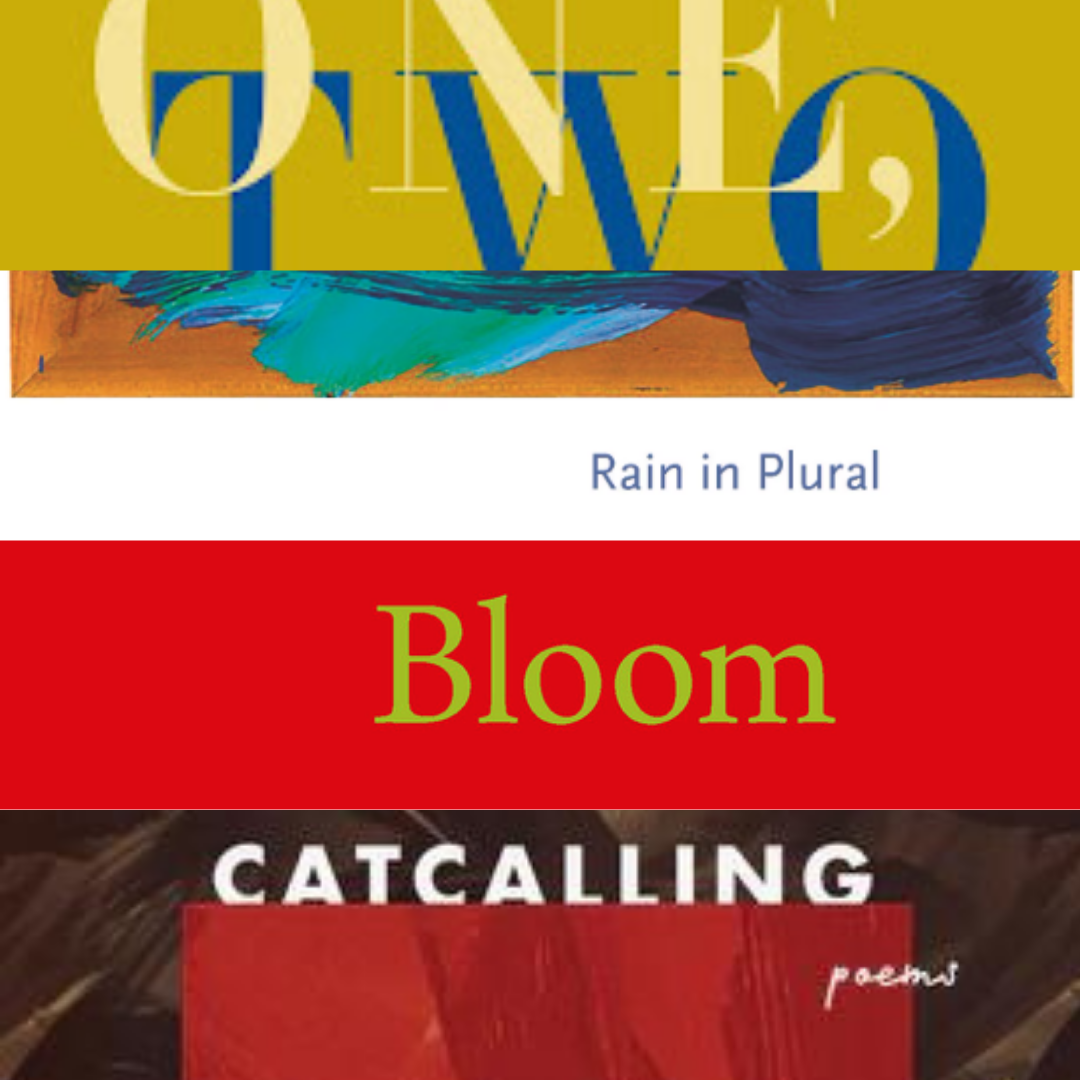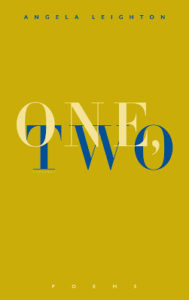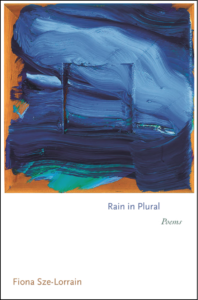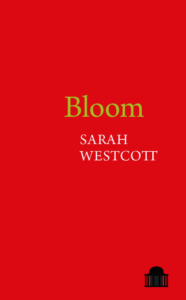
Contributor Bio
Maggie Wang
In Case You Missed It: Four Poetry Collections
by Maggie Wang
National Poetry Month may be coming to a close, but the companionship of poetry is timeless. Here are a few collections from the past two years to carry the spirit of poetry into the summer. These works represent a transnational group of voices and speak in distinctive ways about language, the body, and the environments in which we live.
One, Two by Angela Leighton (Carcanet, 2021)
 Poet and translator Angela Leighton’s fifth collection is traditional yet arrestingly innovative. Her sense of melody shines through in poems that range in focus from her Neapolitan heritage to the moral justifications for political poetry. There is nothing frivolous or sentimental about Leighton’s writing. It is intellectual, dense, and inquisitive: “On this dry tongue some everlasting metal / might hush a ferryman, tip an angel.” Twists on myths, especially that of Persephone, abound. The rhymes are dexterous, not contrived, and form always matches function, but Leighton’s touch remains light. She watches children at play, imagines a composer writing his daughter’s death into music, considers how the world’s most enduring instruments—the flute, the lyre, the horn—came to be. The collection ends with a series of translations of Dante and Pirandello that challenge our idea of translation while remaining true to the original texts. “We who traffic from tongue to tongue [ … ] / must make thought’s impulse dance to the tune / that words call,” she writes, closing out a collection full of wit and grace.
Poet and translator Angela Leighton’s fifth collection is traditional yet arrestingly innovative. Her sense of melody shines through in poems that range in focus from her Neapolitan heritage to the moral justifications for political poetry. There is nothing frivolous or sentimental about Leighton’s writing. It is intellectual, dense, and inquisitive: “On this dry tongue some everlasting metal / might hush a ferryman, tip an angel.” Twists on myths, especially that of Persephone, abound. The rhymes are dexterous, not contrived, and form always matches function, but Leighton’s touch remains light. She watches children at play, imagines a composer writing his daughter’s death into music, considers how the world’s most enduring instruments—the flute, the lyre, the horn—came to be. The collection ends with a series of translations of Dante and Pirandello that challenge our idea of translation while remaining true to the original texts. “We who traffic from tongue to tongue [ … ] / must make thought’s impulse dance to the tune / that words call,” she writes, closing out a collection full of wit and grace.
Rain in Plural by Fiona Sze-Lorrain (Princeton University Press, 2020)

For more music and a lively sense of humor, I turned to Rain in Plural, the fourth collection by poet, translator, and guzheng harpist Fiona Sze-Lorrain. “Day after day, / this sentence grew longer,” she muses. “The verb ran faster // than expected. Pushy // as ever, it hurt the feelings of its own // speaker.” Such unexpected juxtapositions lend the collection a quirky vividness. Though consecutive lines and stanzas often touch on drastically different subjects, the poems still offer a sense of wholeness. “Due to my budget, Brecht and Puccini cost less than a phone bill.” Throughout the collection Sze-Lorrain speaks of herself through the musical and literary figures, real and metaphorical, that have influenced her. One dignified, self-aware poem addresses itself to critics, while another, more apologetic in tone, is directed to the Muse. Regardless of her subject, Sze-Lorrain manages to be inventive and original without sacrificing authenticity and musical balance.
Bloom by Sarah Westcott (Liverpool University Press, 2021)

As its title suggests, Bloom, Sarah Westcott’s second collection, is full of flowers. “Have you looked, / Have you looked deeply—” she asks. “The feeling, / the feeling is what I mean.” With humility, reflectiveness, and careful attunement to her surroundings, Westcott calls for her readers to stop and contemplate the wonders of the natural world. Her language is tender and vivid: “I wanted my hands to touch something alive, / picked daisies, celandine, forget-me-not, and bluebell—.” Birds show up almost as much as flowers; the opening poem features an encounter between the narrator and a dove. At the same time, Westcott reveals a deep awareness of her own body. She writes intelligently about womanhood and nature, sometimes weaving the two together: “There are parts of our bodies we will never know,” she realizes, and later, “The weather is inside me, blue skies in lemur country.” These poems describe ordinary moments made noteworthy by the poet’s good eye and deft imagery. “All beginnings are naïve,” she writes, and, in this collection, her curiosity proves contagious.
Catcalling by Lee Soho, translated by Soje (Open Letter Books, 2021)

Catcalling, South Korean poet Lee Soho’s award-winning debut, cannot have been an easy book to translate, and therein lies its brilliance. The collection—visceral, surreal, at times disturbing—revolves around the coming-of-age of the narrator-protagonist, Kyungjin, who is also a poet. It explores the abuse Kyungjin endured as a child and the unwanted advances she faces from men as an adult. Lee’s poems freely play with language: “Father placed all of our palms on the ceremonial tableware / then hammerhammered the nails in.” The collection, which features Spanish and the original Korean as well as English, is replete with footnotes revealing borrowings from theater, drawing, and performance art. Lee eschews conventional syntax and revels in the use of direct address, often inserting herself into her protagonist’s narrative. “Hello, I am Lee Soho and I write poems,” one poem begins. “First, I would like to apologize for troubling my readers / who have shown me love.” Yet the collection needs no apology. Its courage, linguistic dexterity, and risk-taking more than justify it.
Published on April 27, 2022
